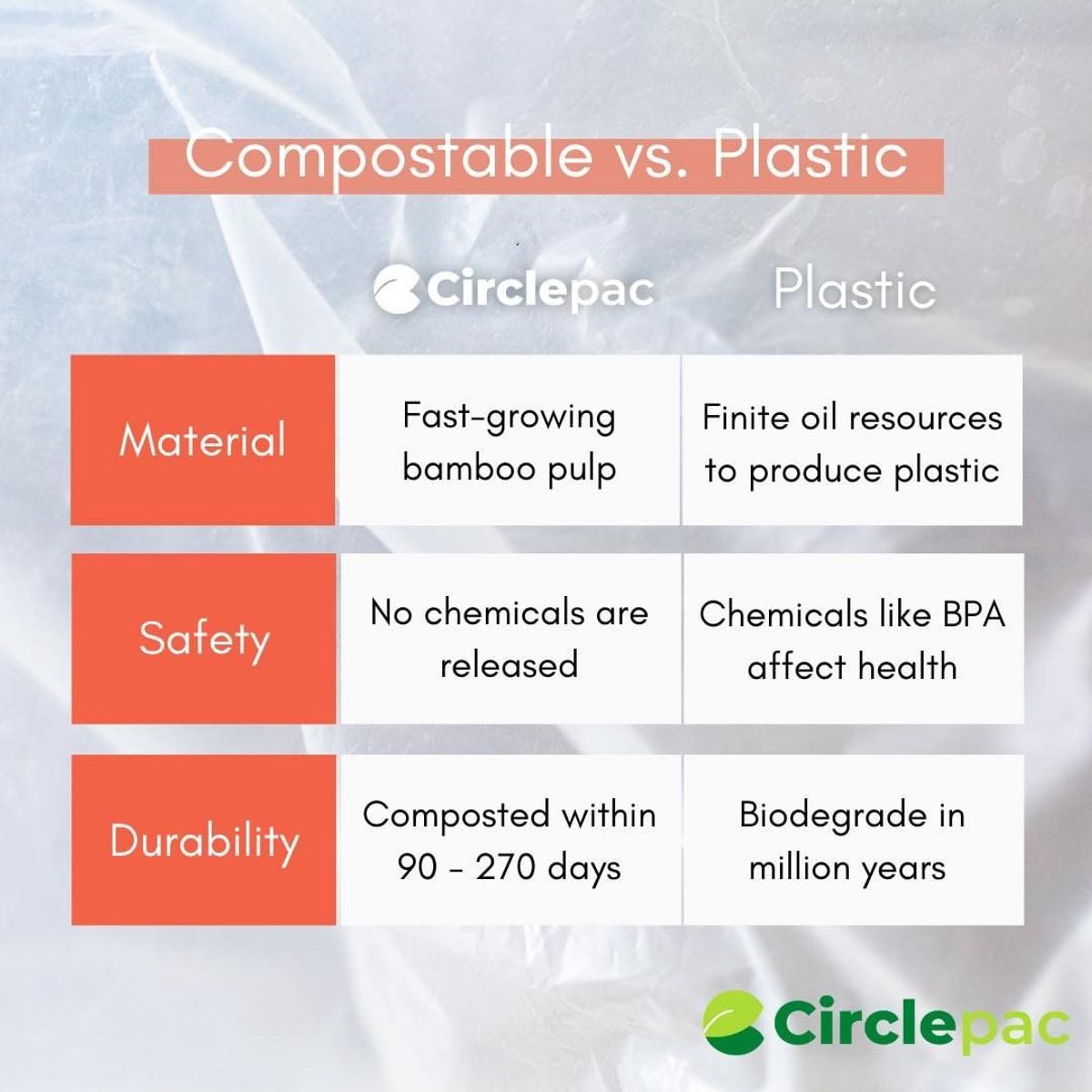
Many packaging products boast environmentally-friendly benefits such as “biodegradable” and “compostable” materials. What do these terms actually mean? It is crucial to learn about the terms used to fully understand the impacts that packaging materials have on the environment.
What Does Biodegradable Mean?
Biodegradable objects can be decomposed by living things or bacteria. This decomposition may take a long time, but eventually the item can be consumed, processed and reintroduced to the world in a different chemical composition. However, the definition of biodegradable does not have a time limit placed on it. It could take anything from 12 months to 700 years to break down. This means that, technically, almost any product could be labelled “biodegradable” because most things will break down at some point in the future even some conventional plastics will eventually break down into smaller, sometimes toxic components for example.
What Does Compostable Mean?
Compostable materials have been certified to break down completely into non-toxic components (water, carbon dioxide, and biomass) that will not harm the environment, given the right conditions. Some materials can be home-composted (like loose tea leaves and apple cores) but not all materials are suitable for composting at home.
Bio-plastics (compostable alternatives to conventional plastic packaging) are fully plant-derived and fully compostable but they require the right conditions to fully break down. For anything to be industrial compostable, it needs to be certified to break down in industrial composting facilities within 180 days. Compost has many beneficial uses including fertilizing and improving soil health—plus, it doesn’t leave toxic residue behind because it’s already organic.




